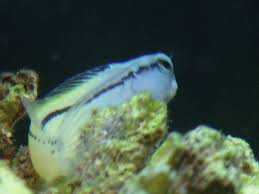
Pineapple, a tropical delight cherished by many, can offer potential health benefits when introduced into a cat’s diet. While it’s crucial to approach this with caution and in moderation, certain nutritional elements in pineapple may contribute positively to your feline friend’s health.
**1. **Rich in Vitamin C:**
Pineapple is renowned for its high vitamin C content. While cats produce their own vitamin C, dietary sources can still be beneficial. Vitamin C is known for its antioxidant properties, supporting the immune system and aiding in the repair of tissues. Incorporating small amounts of pineapple into your cat’s diet may contribute to their overall well-being.
**2. **Dietary Fiber for Digestive Health:**
Pineapple contains dietary fiber, a crucial element for maintaining digestive health. Fiber helps regulate bowel movements, prevent constipation, and support a healthy gastrointestinal system. Including pineapple in your cat’s diet in moderation can contribute to their daily fiber intake.
**3. **Hydration Assistance:**
Pineapple has a high water content, contributing to hydration. While cats are often known for their low water intake, incorporating moisture-rich foods like pineapple can aid in keeping your cat hydrated, supporting kidney function and overall hydration levels.
**4. **Natural Sugars as a Palatable Option:**
The natural sugars present in pineapple may make it a palatable option for cats. This can be particularly useful for cat owners looking to diversify their cat’s diet or encourage picky eaters. However, it’s essential to offer pineapple in small, controlled amounts to prevent overconsumption of sugars.
**5. **Antioxidant Properties:**
The antioxidants found in pineapple, including vitamin C and other compounds, play a role in neutralizing free radicals in the body. While cats produce their own antioxidants, the additional supply from dietary sources like pineapple may contribute to cellular health and protection.
**6. **Caution and Moderation:**
Despite these potential benefits, it’s crucial to exercise caution and ensure moderation when introducing pineapple to your cat’s diet. Excessive consumption of natural sugars can lead to digestive upset, and some cats may be more sensitive to dietary changes than others.
**7. **Preparation Tips for Safety:**
When offering pineapple to your cat, ensure it is prepared safely. Remove the tough outer skin, core, and any potential choking hazards. Cut the pineapple into small, manageable pieces to reduce the risk of digestive and choking issues.
**8. **Consulting with a Veterinarian:**
Before making any significant changes to your cat’s diet, including the introduction of pineapple, consult with your veterinarian. They can provide personalized advice based on your cat’s health profile, dietary needs, and potential sensitivities.
**Conclusion:**
While pineapple can offer certain health benefits for cats, it’s crucial to approach its inclusion in their diet with careful consideration. As with any dietary change, moderation is key, and consulting with a veterinarian ensures that you make informed decisions tailored to your cat’s specific health requirements. By understanding the potential benefits of pineapple and incorporating it responsibly, you can offer your feline companion a tasty and nutritious treat that complements their overall diet.









